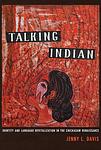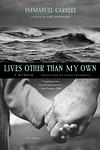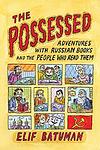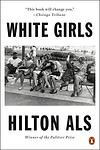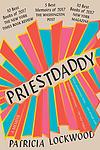The Greatest "Nonfiction, Fiction, Social & Cultural Fiction" Books Since 1980
Click to learn how this list is calculated.
This list represents a comprehensive and trusted collection of the greatest books. Developed through a specialized algorithm, it brings together 300 'best of' book lists to form a definitive guide to the world's most acclaimed books. For those interested in how these books are chosen, additional details can be found on the rankings page.
Genres
Social & Cultural Fiction is a literary category that encompasses novels and stories that delve into the complexities of society and culture, exploring themes such as class, race, gender, and identity within specific social contexts. These narratives often provide a lens through which readers can examine the intricacies of human relationships and the impact of cultural norms and societal structures on individuals and communities. By offering a fictional yet reflective portrayal of real-world social dynamics, this genre invites readers to gain a deeper understanding of the diverse experiences that shape our world. Authors in this category frequently use their characters and settings to comment on contemporary issues, challenge prevailing ideologies, and provoke thought about the possibility of social change, making Social & Cultural Fiction a powerful tool for empathy and a mirror for the ever-evolving human condition.
Countries
Date Range
Reading Statistics
Click the button below to see how many of these books you've read!
Download
If you're interested in downloading this list as a CSV file for use in a spreadsheet application, you can easily do so by clicking the button below. Please note that to ensure a manageable file size and faster download, the CSV will include details for only the first 500 books.
Download-
1. The Emigrants by Winfried Georg Sebald
"The Emigrants" is a novel that explores the experiences and memories of four different emigrants, each with a unique and complex history. The narrative primarily focuses on the psychological impact of displacement and the haunting nature of the past. The author delves deep into their lives, revealing their struggles with identity, loss, and the persistent influence of their roots. The narrative is interwoven with historical events, photographs, and other documents, creating a rich tapestry that blurs the line between fact and fiction.
-
2. What Is the What by Dave Eggers
The novel is a fictionalized account of a real-life Sudanese refugee, Valentino Achak Deng, who was forced to flee from his village during the Second Sudanese Civil War. The story follows his harrowing journey as a child through Ethiopia and Kenya, his life in various refugee camps, and his eventual resettlement in the United States. The book explores themes of survival, identity, and the power of storytelling, while shedding light on the tragic history and ongoing humanitarian crisis in Sudan.
-
3. Wittgenstein's Nephew by Thomas Bernhard
"Wittgenstein's Nephew" is a semi-autobiographical novel that explores the friendship between the narrator and his friend Paul, who is the nephew of the famous philosopher Ludwig Wittgenstein. The story takes place in Vienna and is set against the backdrop of the Austrian mental health system. The novel delves into themes of sanity, insanity, and the fine line that separates the two, while also offering a critique of Austrian society. It is a meditation on the nature of illness, both physical and mental, and the impact it has on personal relationships and one's perception of the world.
-
4. In My Mother's House by Kim Chernin
"In My Mother's House" is a poignant exploration of the complex relationship between a daughter and her mother, set against the backdrop of the daughter's journey to understand her own identity and the influence of her mother's past. The narrative delves into themes of feminism, psychoanalysis, and Jewish cultural heritage, as the daughter grapples with her mother's expectations and the weight of generational trauma. Through a blend of memoir and fiction, the book examines the intricate bonds of family and the struggle for self-definition in the shadow of a powerful maternal figure.
-
5. Silent Dancing by Judith Ortiz Cofer
"Silent Dancing" is a poignant collection of autobiographical essays and poetry that weave together the memories of a Puerto Rican girl growing up in two worlds: the vibrant, warm island of her birth, and the cold, often unwelcoming urban landscape of New Jersey. Through a series of reflective and lyrical narratives, the author explores the complexities of her bicultural identity, dealing with themes of family, language, and the search for a sense of belonging. Her stories oscillate between the past and the present, capturing the nostalgia for a homeland left behind and the challenges of navigating a new American life, all while trying to hold onto her cultural heritage and personal history.
-
6. Talking Indian by Anna Lee Walters
The book is a poignant exploration of Native American identity and the complexities of cultural preservation amidst the backdrop of modern America. Through a series of interconnected stories, the narrative delves into the lives of various characters as they navigate the challenges of maintaining their ancestral traditions and language in a society that often marginalizes their heritage. The author weaves a tapestry of personal and communal experiences, reflecting on themes of memory, loss, and resilience, ultimately presenting a heartfelt examination of what it means to "talk Indian" in a world where such identities are constantly under pressure.
-
7. The Years by Annie Ernaux
"The Years" is a compelling narrative that blends autobiography and collective history to depict the evolution of French society from the 1940s to the early 2000s. Through a blend of personal memories, shared experiences, and common artifacts, the book captures the passage of time and the changes it brings to individual lives and collective identity. The author uses an innovative form of writing, eschewing a traditional linear narrative and personal pronouns, to create a reflective and powerful exploration of memory, aging, and the continuous transformation of societal norms and personal aspirations.
-
8. Lives Other Than My Own by Emmanuel Carrère
"Lives Other Than My Own" is an emotionally charged narrative that explores the lives of two women who have experienced immense loss, one from a tsunami and the other from cancer. The author, through his personal encounters, delves into the raw emotions, resilience, and the profound bonds of family and friendship that emerge from these tragic circumstances. The book is a thoughtful exploration of empathy, offering a poignant look at the strength of human spirit in the face of adversity.
-
9. The Possessed by Elif Batuman
"The Possessed" is a compelling narrative that combines memoir, criticism, and travel writing to explore the author's deep fascination with Russian literature. Through her experiences as a graduate student at Stanford, her travels to Turkey, Russia, and Uzbekistan, and her encounters with other scholars, the author delves into the works of great Russian authors such as Tolstoy, Dostoevsky, and Chekhov, while also reflecting on the nature of literature, identity, and the human condition.
-
10. White Girls by Hilton Als
"White Girls" is a collection of essays that explore the concept of "white girls" as the author sees it - a cultural and racial construct, rather than a literal description. The book delves into the author's personal experiences, pop culture, history, and his own identity as a gay black man. It examines figures from pop culture, literature, and the author's personal life, including Truman Capote, Michael Jackson, and the author's own sister, to explore themes of race, gender, identity, and the love and loss that comes with friendship.
-
11. Priestdaddy by Patricia Lockwood
" Priestdaddy" is a memoir by Patricia Lockwood that recounts her experiences growing up in a highly unusual family. Her father is a Catholic priest who converted from Lutheranism and her mother is a former nun. The book explores the complexities of family dynamics, religion, and sexuality through Lockwood's sharp wit and unique perspective. The author also delves into her own struggles with mental illness and the challenges of reconciling her unconventional upbringing with her adult life. Overall, "Priestdaddy" is a poignant and humorous memoir that offers a fresh take on the coming-of-age genre.
Reading Statistics
Click the button below to see how many of these books you've read!
Download
If you're interested in downloading this list as a CSV file for use in a spreadsheet application, you can easily do so by clicking the button below. Please note that to ensure a manageable file size and faster download, the CSV will include details for only the first 500 books.
Download




